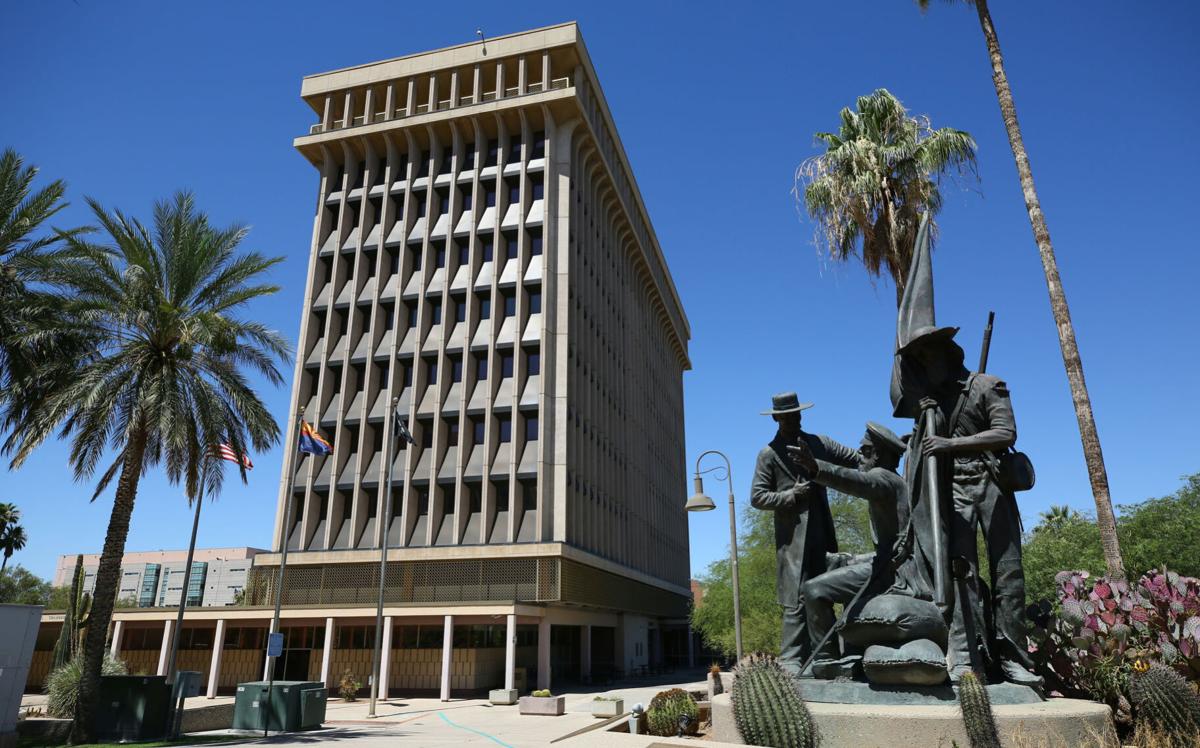PHOENIX — The Arizona Senate voted Tuesday to ask voters to wipe out the ability of cities to have home rule through their own charters.
They did so only after the measure’s sponsor, Tucson Republican Sen. Justine Wadsack, promised to have it narrowed — though it isn’t yet — to affect only Tucson and Phoenix, and pretty soon Mesa as its population grows.
As approved, Senate Concurrent Resolution 1023 would repeal a provision of the Arizona Constitution, dating to territorial days, that permits city voters to establish home rule. Home rule enables cities to make their own rules on matters of local concerns such as how the local government is set up and how and when to run elections. There are 19 charter cities in the state.
Republicans Ken Bennett and T.J. Shope said Tuesday they supported the resolution because Wadsack vowed to have it altered when it now goes to the House so it would affect only communities larger than 500,000. Both said they would not have voted for it if it undermined the charters that now exist in Prescott and Casa Grande in their home legislative districts.
That logic angered Senate Minority Leader Mitzi Epstein, a Democrat from Tempe, another charter city.
“What I’m hearing so far is, ‘Well, as long as it doesn’t happen to my city then I’ll let this bad idea happen to somebody else’s city,’ ‘’ said Epstein.
“That’s flabbergasting,’’ she said. “It seems disrespectful to our democratic republic. It seems disrespectful to the idea that everybody deserves a voice.’’
Senator cast deciding vote despite doubts
Shope acknowledged his “yes” vote for SCR1023 was based on Wadsack’s vow the bill will be amended so it wouldn’t affect any communities of fewer than 500,000 people — meaning none in his legislative district. He said he’s OK with making that distinction based on population.
“I’ve done it before,’’ Shope said, calling smaller and larger cities “different animals.’’
“To compare Tucson or Phoenix to a Casa Grande or a Florence or what-have-you that I represent, they’re not even in the same stratosphere,’’ he said. “There does have to be some wiggle room in state law to recognize that they’re not the same.’’
Bennett said he’s “not really comfortable’’ with the idea of removing the right to have a charter from all cities. That is why he voted against the measure last week when it first came up, he said.
But all that changed Tuesday with Wadsack’s commitment to add limiting language. “I’ve been promised by the sponsor that that will be added in the House,’’ Bennett said in casting the deciding 16th vote in the 30-member Senate.
Even with that, Bennett said he’s still ill at ease with the whole concept.
“I’m still struggling with doing to three of the 19 charter cities what I’m protecting the other 16 from,’’ he said.
Only voters can amend state constitution
Tuesday’s vote is not the last word — and not only because SCR1023 needs House approval and, presumably, the amendment Wadsack has promised.
It seeks to amend the state constitution, and that can be done only if statewide voters in 2024 ratify the change.
The measure is one of two being pushed by Wadsack, a first-term lawmaker, who has repeatedly said she is unhappy with one particular power that her home community of Tucson has exercised by virtue of its charter status: how it conducts elections.
State law requires that city councils be chosen either through at-large elections, where everyone in the community gets to vote for all candidates, or through a district system with council members chosen by voters living in that part of the city.
Tucson has a hybrid, with candidates nominated in each of the six districts but having to stand for election on a citywide basis. That guarantees at least one council member from each district.
But it also has meant more often than not that Republicans nominated from their own home districts cannot survive a citywide election, as Democrats outnumber registered Republicans by a two-to-one margin.
Eliminating Tucson’s charter status would eliminate its ability to keep the current election system.
Earlier this week Wadsack convinced Senate Republicans to support a more narrow effort. Her SCR1027, which also would go on the ballot, would outlaw Tucson’s modified ward system without eliminating the right of any city to keep its charter.
That measure also now needs House approval.
Get your morning recap of today's local news and read the full stories here: tucne.ws/morning





